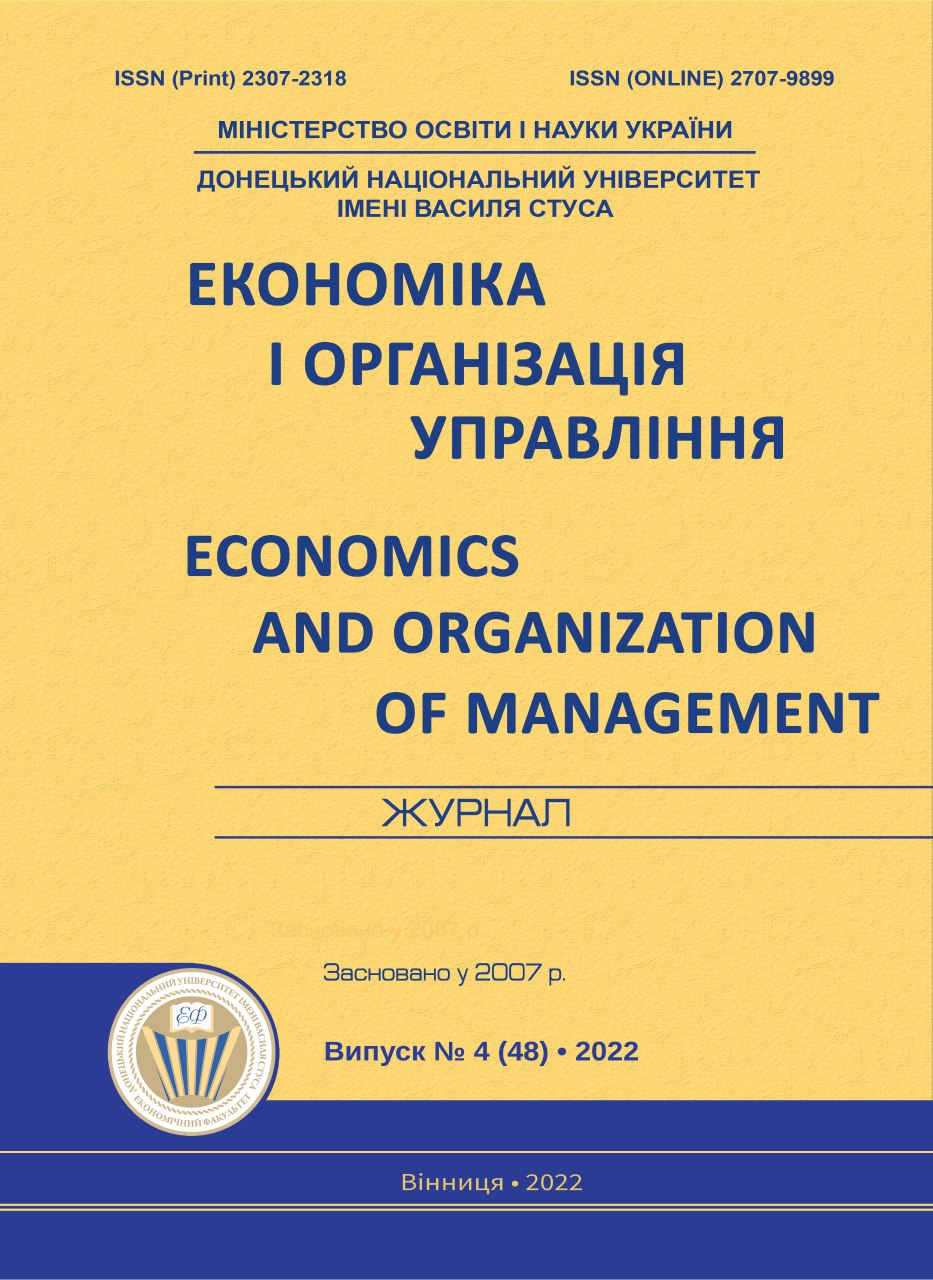The impact of tourism on the employment of the country's population
DOI:
https://doi.org/10.31558/2307-2318.2022.4.4Keywords:
tourism; development; factors; population; GDP; income; employmentAbstract
The tourism sector is developing at an increasing pace. Having financial opportunities, the development of personal needs and the manifestation of free time, people more choose to travel in different countries of the world and all this is associated with information opportunities. It is noted that large-scale work on tourism development has been carried out in Azerbaijan recently. Karabakh was under Armenian occupation until November 10, 2020, because of this it was excluded from these processes. Armenia, which occupies 20% of Azerbaijani lands, as in all spheres of the economy, has caused serious damage to the tourism sector.
Large hotel chains have been formed in the field of accommodation and catering in the tourism sector, operators regularly stand out among tourist companies that organize control over tourist markets, and the air transport market is expanding. The article notes that the presence of hotel companies in various countries, which play a key role in the development of the tourism industry, accelerates their worldwide recognition. Factors influencing the development of tourism play a crucial role in determining the state of development of the country's tourism business.
The world labor and employment markets and their structure have a certain impact on the development of tourism or vice versa. It is estimated that there are about 325 million people in the world employed in permanent or temporary jobs in tourism and related industries. As a result of the study, it was found that the employment of the population in different countries with the multiplier effect of tourism is several times higher than with direct employment. Even in countries with multiplicative efficiency of this sphere, the employment rate of the population is 4.5-11.8% higher than with direct employment and this directly affects the creation of a large number of jobs in the tourism sector and related industries, which is due to the contribution of the tourism sector to the country's GDP, the number of tourist arrivals and the growth of tourism revenues.
References
Oborin, M. S. (2021). Consequences of the impact of the COVID-19 pandemic on world tourism. Online Scientific Journal. T15, No.1(93). Pp. 47-58.
UNWTO World Tourism Barometer 2021. URL : https://webunwto.s3.eu-west 1.amazonaws.com/s3fspublic/ 2021-07
Tourism grows 4% in 2021 but remains far below pre-pandemic levels. URL : https://www.unwto.org/news/tourism-grows-4-in-2021-but-remains-far-below-pre-pandemic-levels
Dzhandzhugazova, E. A., Blinova, E. A., Orlova, L. N. & Romanova, M. M. (2016). Innovations in Hospitality Industry. International journal of environmental & science education. Vol. 11, No. 17.
World Heritage in Azerbaijan. URL : https://unesdoc.unesco.org/ark:/48223/pf0000368373
Tourism in Azerbaijan. Statistical totality (2022). The State Statistics Committee of the Republic of Azerbaijan. Baku. 101 p.
Tourism in Azerbaijan. URL : https://www.worlddata.info/asia/azerbaijan/tourism.php
2020: A year in review. COVID-19 and Tourism. Tourism in pre-pandemic times. URL : https://www.unwto.org/covid-19-and-tourism-2020
Lew, A. A. (2011). Tourism's role in the global economy. Tourism Geographies. No 13(1). Pp. 148-151.
Alhowaish, A. K. (2016). Is Tourism Development a Sustainable Economic Growth Strategy in the Long Run? Evidence from GCC Countries. Sustainability. 8(7): 605. URL : https://doi.org/10.3390/su8070605
Karpenko, A., Gurbyk, Yu. (2020). Modern models of state regulation of tourism. Regional aspects of productive forces development of Ukraine. No 25. Pp. 23-30.
The World Tourism Organization (UNWTO) is the United Nations agency responsible for the promotion of responsible, sustainable and universally accessible tourism. URL : https://www.unwto.org/
Dzhyndzhoian, V. V., Salenko, A. S. & Sazonets', I. L. (2021). Sotsial'ni determinanty rozvytku sfery posluh v kontseptsii formuvannia postindustrial'noho suspil'stva. Monograph. Rivne, Volyn. Oberehy. 208 p.
Atamanchuk, Z.A. & Demyanova, Yu. O. (2019). International tourism as a priority area of socio-economic development of the countries of the world. Scientific Bulletin of Uzhhorod University. Economy series. No 2(54). Pp. 23–28. URL : http://visnyk-ekon.uzhnu.edu.ua/article/view/184847
Strategic Roadmap on the development of specialized tourism industry in the Republic of Azerbaijan. Decree of the President of the Republic of Azerbaijan. 6.12.2016. Baku. 2016. 98 p.
Number of international tourist arrivals worldwide from 2005 to 2021. URL : https://www.statista.com/statistics/186743/international-tourist-arrivals-worldwide-by-region-since-2010/
The anatomy of tourism. International social science journal. 1980. No 1. URL : http://surl.li/ejeus
Top 27 hotel chains and brands worldwide. URL : https://planetofhotels.com/guide/en/blog/largest-hotel-chains
Momont, T. V. (2012). Main factors of development of the market of tourist services. Economics. Management. Innovations. Series: Economic sciences. 2012. No. 1. URL : http://nbuv.gov.ua/UJRN/eui_2012_1_35.
Sahalakova, N. O. (2016). Tourism: business processes, prices and pricing. Monograph. Kyiv. 416 p.
Gladkey, A. V. (2020). International tourism vs. COVID-19: trends, forecasts, prospects. Research Result. Business and Service Technologies. No 6(4). Pp. 3-10.
The current state of global tourism and factors shaping the industry in 2022 and beyond. URL : https://www.hlb.global/the-current-state-of-global-tourism-and-factors-shaping-the-industry-in-2022-and-beyond/
International tourist arrivals by region. URL : https://ourworldindata.org/grapher/international-tourist-arrivals-by-world-region
Sintayehn, A., Berhani, F. & Tesfaye, S. (2016). Employment Opportunities and Challenges in Tourism and Hospitality Sector. Journal of Tourism & Hospitality. Vol. 05 (06). Pp. 3-12.
Ismayilov, V. I. (2017). The main directions of formation of tourism-recreation complex in Azerbaijan. Journal Business Economics. Vol. 2. Pp. 562-569.
Ismayilov, V. I., Almasov, N. N. & Mirzayev, S. (2021). The programme of reduction and profilling of long-term unemployment in Azerbaijan. The journal of economic sciences: Theory and Practice. Baku. Vol. 78. Pp. 40-65.
World Tourism and Travel Council. URL: https:// wttc.org

